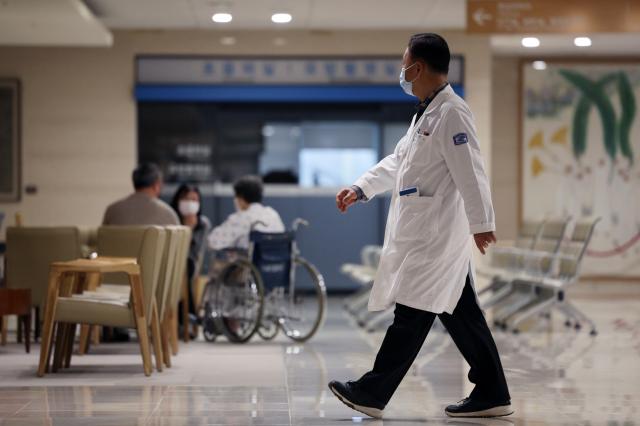
[Yonhap Photo]
The "pooling protocol" invented by the Korea Centers for Disease Control and Prevention (KCDC), a state health watchdog, to examine up to 10 samples at once was applied from April 14 to 21 to 1,108 patients and careworkers at four nursing hospitals at Seocho District in southern Seoul.
The protocol has been introduced to prevent herd infections at vulnerable places such as nursing hospitals that often have frustrated health officials trying to stem the spread of a coronavirus epidemic.
Mass infections at nursing hospitals and care facilities for old people have created a major obstacle to South Korea's anti-epidemic campaign since the first case was reported on January 20. To quickly find out if the virus has penetrated, KCDC researchers have joined hands with the Korean Society for Laboratory Medicine to create the new protocol that combines multiple samples into one.
Samples should be re-tested individually if the first test is positive. The new method is useful to sort out virus carriers showing no symptoms from risk groups such as those who are housed at nursing facilities and require periodic inspections. KCDC officials said that even if 10 samples are pooled, they can maintain the sensitivity of 96 percent or more compared to individual samples.
KCDC director Jeong Eun-kyeong said earlier that the new method is aimed at finding patients hidden in communities, referring to a research letter published online by the Journal of the American Medical Association, a peer-reviewed medical journal, that said pooled screening may facilitate early detection and enable the "timely implementation of appropriate infection control measures to reduce spread."
The Stanford Health Care Clinical Virology Laboratory said in the research letter that sample pooling, a strategy used for community monitoring of other infectious diseases, "does not obviate the need for individual diagnostic testing, particularly as community transmission intensifies."




